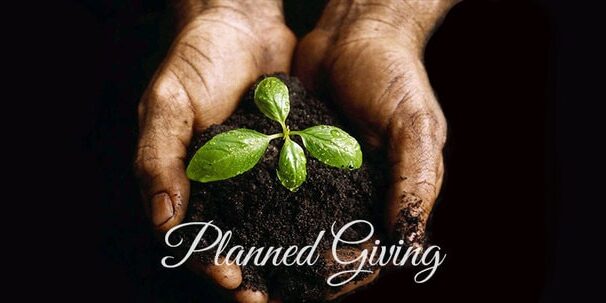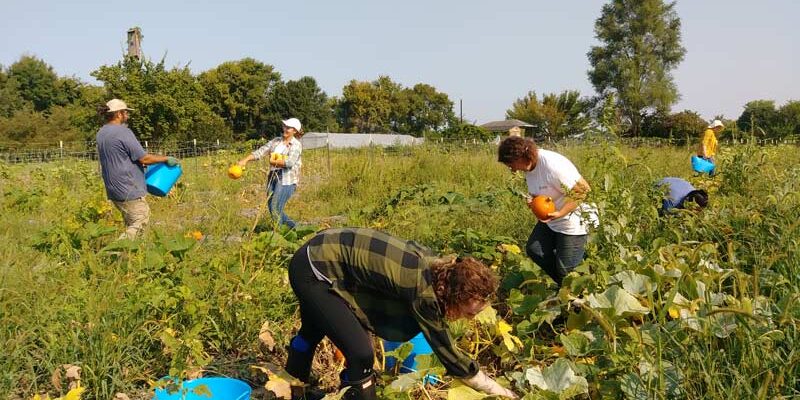The Cry of the Poor
Note: This is one of a series of reflections on the seven Laudato Si’ Action Plan Goals. Find information about the Laudato Si’ Action Plan and goals here.
Working and living for ecological health and standing against poverty are one and the same. They are not separate unrelated entities. In reflecting on St. Francis of Assisi, Pope Francis in Laudato Si’ says, “He (St. Francis) shows us just how inseparable the bond is between concern for nature, justice for the poor, commitment to society, and interior peace.” (Laudato Si’ Paragraph 10).
A Call

The term “eco-justice” addresses this intersection of environmental work and justice living.
The Response to the Cry of the Poor document calls us to promote eco-justice as a basic human right for all. To become aware that we are called to defend human life from its beginning to death and to defend all forms of life on Earth.
Our response begins with an awareness, an open attentiveness to how our actions affect others, especially the poor and Earth. For example, are we aware that when we throw things away that we impact Earth and human thriving?
Are we aware of how much plastic we use, its non-decomposing properties and the $250,000,000,000 international health care cost in 2018 due to effects of plastic on humans? (“Plastic Free Resolutions: Protecting Your Health in 2023,” webinar of Plastic Pollution Coalition, Jan. 18, 2024).
Gasping for Life
As Earth gasps for life, Pope Francis explained in Laudato Si’, so do economically marginalized people struggle while they experience health and thriving issues. This struggle is from fossil fuels, increased sea levels, heat waves, droughts, floods, storms and food insecurity.
Polluted lands and air, often regulated by governments, disproportionately affects poor women, children and future generations . Health of Earth and human life are interconnected. This interconnection calls us to act for healthier breathing of Earth and all human life.

The causes of these environmental realities have human roots. They lie in our unintentional choices caused by lack of awareness and/or our overly individualist style of living that guides our actions and policies. Your, mine and our choices impact the environment and others, especially the poor.
A Change of Focus
Let us shift living from a focus on “me” to a focus on “we.” Let’s move from single-mindedness to focus on the human community, wherein all are created in the image of the Divine and worthy of a healthy and thriving life.
Reflecting on the use of plastics is one example from which we can get a picture of our role in creating a healthier world.
In the U.S., plastic production is expected to outpace coal plants in greenhouse gas emissions by 2030. Plastics do not decompose, thus damaging the seas and their life forms, threatening biodiversity, poisoning the soil and emitting toxic fumes.
Many facilities that produce plastics are situated near low-income and low-economic-security communities and communities of color. The people there are often already grappling with health disparities and climate injustice.
Become ‘Disrupters’
Our “we” mentality invites us to be “disrupters,” of the damage being done to Earth and to human health by our voice, vote and non-purchase of those items that create damage and impair health.
Let us become advocates and personal change agents. We can support the Break Free from Plastic Pollution Act (BFFPPA) now being considered, for example. Tell your representative to vote for BFFPPA!
What is the consequence for others and Earth in the choices I make? Am I contributing to plastic pollution with my purchases? Am I using my voice to speak up for those most affected by plastic pollution?
Can I be an educational advocate in raising the awareness of others? Would an audit of my use of plastics be beneficial in my making choices that affect others?
Can we hear the cry of the poor and respond collectively and individually for justice?



Exactly. I have always known that what we do for those most vulnerable also benefits us.
I am constantly looking for ways to change habits. Because I lived and worked in Japan and Germany, I am more aware than ever of things that can be done to eliminate plastics from use. Thank you for this article, and for the links.
Thank you, Barbara, for reminding us the hard questions we need to be asking of ourselves prior to buying items that serve our needs. By taking action with our legislative bodies, we can make others aware of the direction we need to take, becoming more ecological minded.
Well said, Barbara! Let us all think about our own ways of living and our own effects on the marginalized. Let’s all use our voices to stand up for a healthier Earth for everyone!
Barbara, thank you for your thought provoking, action oriented questions. I for one believe that recycling plastics is not nearly enough; we need to eliminate them entirely.
Let’s all move to the Antarctic to get their clean air or just find a smart 3rd grader , who
wants to be a scientist and find out why it takes 4,000 years to decompose glass and 20-500 years to decompose plastic ! That third grader gives me hope !